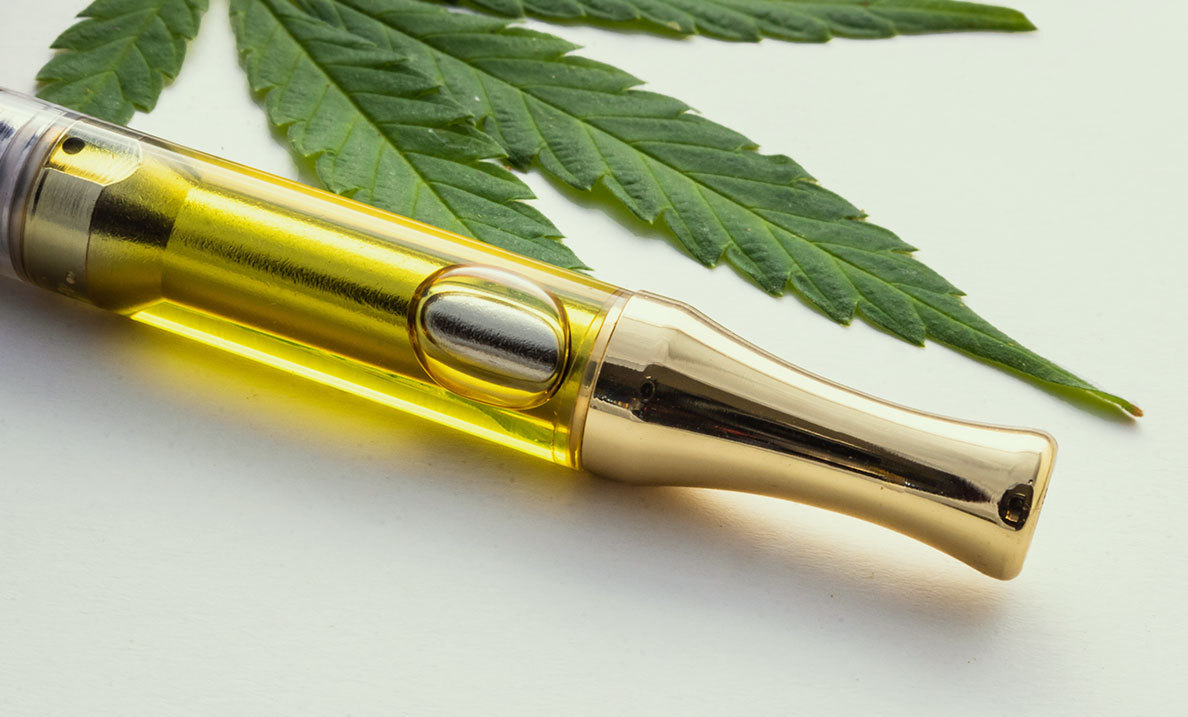One of the most exciting developments to emerge from statewide cannabis legalization is the popularity of cannabis concentrates. Concentrates is a broad term used to describe various cannabis-derived products put through an extraction process to produce, you guessed it, concentrated forms of cannabinoids and terpenes. The most popular are pre-filled cartridges (or carts) designed for vape pens. There’s been a growing interest in these products over the past few years due to their convenience (there’s no need to break up weed and roll a joint like in the old days), they are easy to use, and the THC potency can be leaps and bounds higher than other products.
A report from ArcView Market Research shows nearly $3 billion of legal concentrates were sold in 2018, with sales expected to reach $8.4 billion by 2022. Unfortunately, the black market is getting its fair share of the profits as well. The Washington Post reports the illicit market in California is worth an estimated $9 billion. But unlike the vape carts sold on the legal market, many of the vapes being sold on the street are dangerous fakes that are putting the consumer’s health at risk.
So, what do we mean by fake vapes? As with any popular product sold as part of legal commerce, especially one like cannabis vapes with high demand, there will always be criminal organizations producing counterfeit versions for distribution on the black market. Just take a stroll through Times Square in New York City, and we assure you someone on the street will eventually try to sell you a Gucci bag or some other luxury brand worth thousands for pennies on the dollar. But don’t be fooled. That bag is no Gucci. It’s a fake. According to a report from the Harvard Business Review, the underground forgery trade is now worth an estimated $4.5 trillion.
The cannabis industry is no exception to these shenanigans. The only difference is that buying a knock-off bag isn’t going to make someone sick, but a fake vape could. Although often neatly packaged and appear to be as legit as those sold in dispensaries, these products often contain hazardous additives that have been known to make people seriously ill and, in some cases, prove fatal.
In 2019, hundreds of people across the United States suffered a mysterious lung injury (known as Evali). The illness stumped medical professionals at first, but it was eventually connected to vaping. Users reported various symptoms before visiting the emergency room. Coughing bouts, shortness of breath, and lung pain were among them. Others reported their battle with this pulmonary affliction started with fatigue. Others said it felt like a common cold but then got gradually worse.
Health officials have linked this pulmonary illness to an additive called Vitamin E Acetate. Identifying the culprit early on presumably saved thousands of people’s lives. Other chemicals (Polyethylene Glycol, Propylene Glycol, and Vegetable Glycerin) were also discovered in these vape products. None of which should be ingested through the lungs. Although these cutting agents are FDA-approved – making them highly accessible to anyone — they are not approved by the FDA or any other health agency for inhalation. But health and safety have never been a primary concern for black market operations – only profits, whatever the cost, even if the cost is life. The CDC has since confirmed 2,807 cases of hospitalizations or deaths in all 50 states, the District of Columbia, and two U.S. territories. Almost all of which stemmed from counterfeit cannabis vapes sold on the black market.
If this sounds scary, it should. Nearly 80% of the vapes sold on the black market are bogus and unsafe, a former CIA profiler turned cannabis industry tech entrepreneur told Forbes back in 2019. Anyone who has ever procured a vape pen from sources outside legal channels could have conceivably inhaled potentially hazardous chemicals, putting them at risk of becoming a health statistic. Initially, it was believed drug cartels were at the root of this problem, using the grey areas of the legal markets to run their operations. However, an investigation heralded by Leafly discovered a legal supply chain of operations beginning in China responsible for fake vapes.
Every component of these vapes (hardware, packaging, and additives) can be purchased from wholesalers. In addition to unsafe additives, these products can contain lead (and other toxic heavy metals), pesticides, and butane (along with other residual solvents). These toxins can damage the lungs and are not fit for consumption. Considering there are reportedly more than 50 million of these tainted carts currently circulating in the United States, the consumer should be on guard when making purchases.
But what can consumers do to protect themselves?
Staying safe from lung diseases brought on by fake vapes is relatively easy to do – that’s the good news. For starters, always purchase vape cartridges and other cannabis products from licensed dispensaries with fully tested products. That’s the best defense. State regulations mandate that all cannabis products endure lab testing for dangerous contaminants (from pesticides to heavy metals) before they are sold on the retail market. Any additives mentioned above, including Vitamin E Acetate, would raise a red flag with a reputable lab, like Kaycha Labs, and those products would not be permitted for distribution. Also, and this is important: criminal organizations looking to make a quick buck aren’t seeking out labs to get their products tested. Those items may contain faux packaging details that suggest they have been through such a rigorous process. Kaycha Labs combats this fakery by adding a QR Code to the label of every product we inspect. Once scanned, the label lets the consumer see the exact test results pertaining to the product and see all the testing that was done. Fake vapes also have even been found to contain verbiage implying that they are FDA-approved. This, above all else, is a clear indication of a phony product. No vapes, legal or otherwise, have garnered the approval of the FDA.
Vapes sold in licensed dispensaries will also contain highly detailed information about the product. They include data such as the date of manufacturing and packaging, a government warning about cannabis use, batch number, ingredient list, expiration date, etc. Unfortunately, looking for this info is not always a failsafe. Criminal organizations have been known to copycat legitimate brands (and their packaging) to give their products the clout needed to reassure wary customers. But unless these items are procured from a licensed dispensary, there can be no safety assurances. That’s why it is crucial to the safety of the consumers to only make pot-related purchases from reputable cannabis dealers (convenience stores and smoke shops don’t count) and buy only trusted brands.
Until the federal government steps in and legalizes cannabis nationwide, allowing every state to climb on board, there will be counterfeit cannabis products. It’s conceivable that shady operations will even continue long after legalization is on the books. That’s the unfortunate world we live in. Therefore, the consumer must remain vigilant. Although cases of lung illnesses have been on a decline since 2019, the consumer needs to keep informed and alert to stay protected. It’s impossible to tell what sort of unsavory practices the underground is going to employ next.













